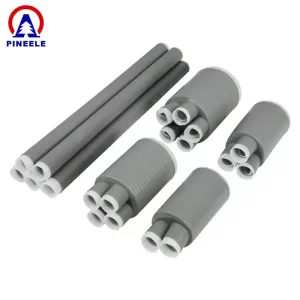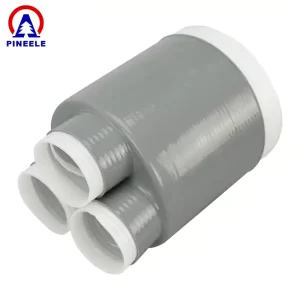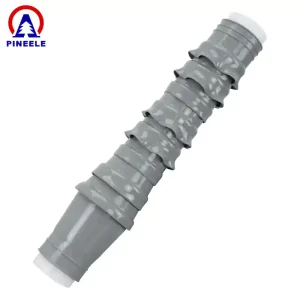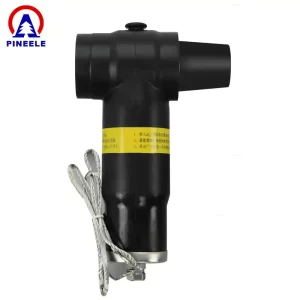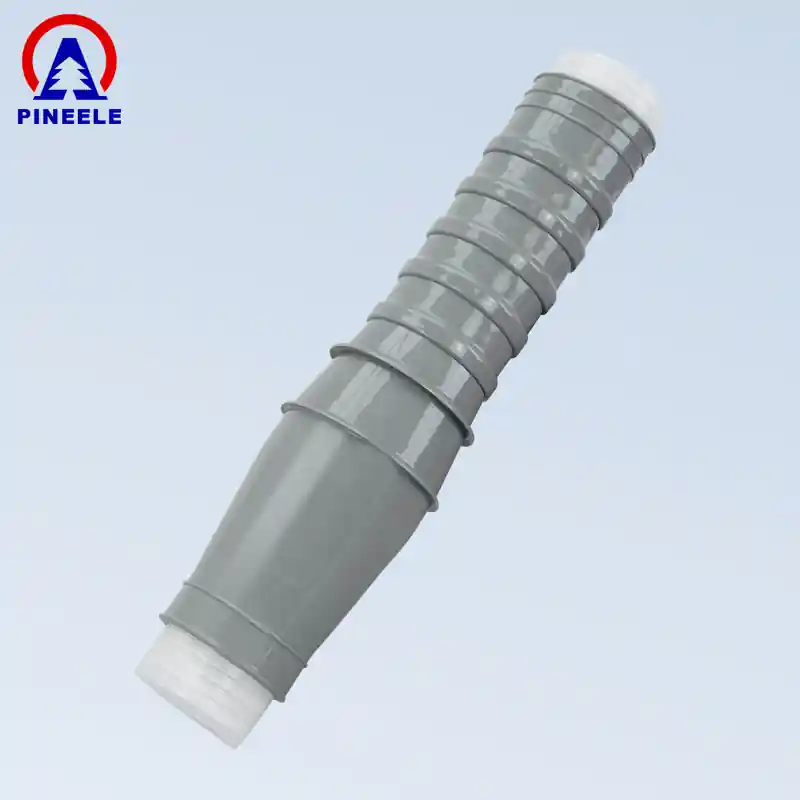
High Voltage Cable Termination Kit
High Voltage Cable Termination Kits are critical components used への terminate そして connect high voltage (HV) パワー cables で electrical 流通 そして transmission システムである。 These kits are engineered への provide safe electrical insulation, environmental sealing, そして mechanical protection where cables interface with switchgear, transformers, circuit breakers, そして overhead lines.
Our HV cable termination kits are available for voltage classes from 11kV への 66kV そして above, そして are compatible with XLPE, EPR, そして PILC insulated cables. について kits come で various configurations, including heat shrink, cold shrink, そして dry-type, offering flexibility への suit indoor または outdoor applications, as well as underground または overhead installations. Each kit includes key components such as stress control tubes, insulating sleeves, lug connectors, sealing mastics, そして grounding materials への ensure reliable performance under demanding conditions.
These termination kits are designed で compliance with international standards such as IEC, IEEE, そして GB, ensuring long-term safety そして stable electrical performance. They offer excellent resistance への UV rays, tracking, water ingress, そして pollution, making them ideal for use で substations, industrial facilities, renewable energy plants, そして utility 流通 networks.
Proper termination of high voltage cables is essential への prevent electrical failures, reduce downtime, そして enhance the reliability of the パワー system. Whether you require a single-phase または three-phase termination, our kits provide an easy そして efficient installation 解決策だ。
Browse our range of High Voltage Cable Termination Kits への find the right product for your project. We also offer technical support そして customization services への meet specific voltage ratings そして application requirements.
Technical Notes for Installation & Ordering
To ensure the proper selection and installation of High Voltage Cable Termination Kits, it is essential to provide detailed cable specifications and site conditions before ordering. The following technical considerations should be carefully reviewed:
- Cable Specifications:
Clearly indicate the voltage level (e.g., 11kV, 33kV), cable insulation type (XLPE, EPR, PILC), number of coresそして conductor size. This ensures the termination kit matches electrical and mechanical requirements. - Installation Environment:
Specify whether the application is indoor, outdoor, overheadあるいは underground. Environmental conditions like humidity, UV exposure, and temperature may influence the choice between heat shrink または cold shrink terminations. - Termination Method & Accessories:
Select the preferred termination type (heat shrink, cold shrink, or dry type) and verify if additional components such as lugs, grounding kitsあるいは stress cones are required. - Site Preparation & Cable Routing:
Provide a layout of the installation site, including cable entry points, termination height, and any mechanical supports needed to ensure secure and durable cable endings.
Early coordination with the manufacturer helps ensure product compatibility, reduces installation risks, and maximizes long-term performance of the high voltage cable system.
よくあるご質問
1. What is included in a High Voltage Cable Termination Kit?
A typical HV cable termination kit includes stress control tubing, insulating sleeves, sealing materials, lugs or connectors, grounding components, and installation instructions. The components may vary depending on the voltage level, installation type (indoor/outdoor), and cable type (XLPE, EPR, PILC).
2. What is the difference between heat shrink and cold shrink termination kits?
Heat shrink kits require a heat source (e.g., gas torch) to shrink the insulating and sealing components onto the cable, while cold shrink kits are pre-stretched elastomeric components that shrink automatically when the inner core is removed—ideal for faster and safer installation, especially in confined or flammable environments.
3. How do I select the right termination kit for my application?
You should consider the system voltage (e.g., 11kV, 33kV), cable insulation type, number of cores, installation environment (indoor or outdoor), and cable size. It's best to consult the manufacturer with full cable specifications to ensure compatibility and optimal performance.
